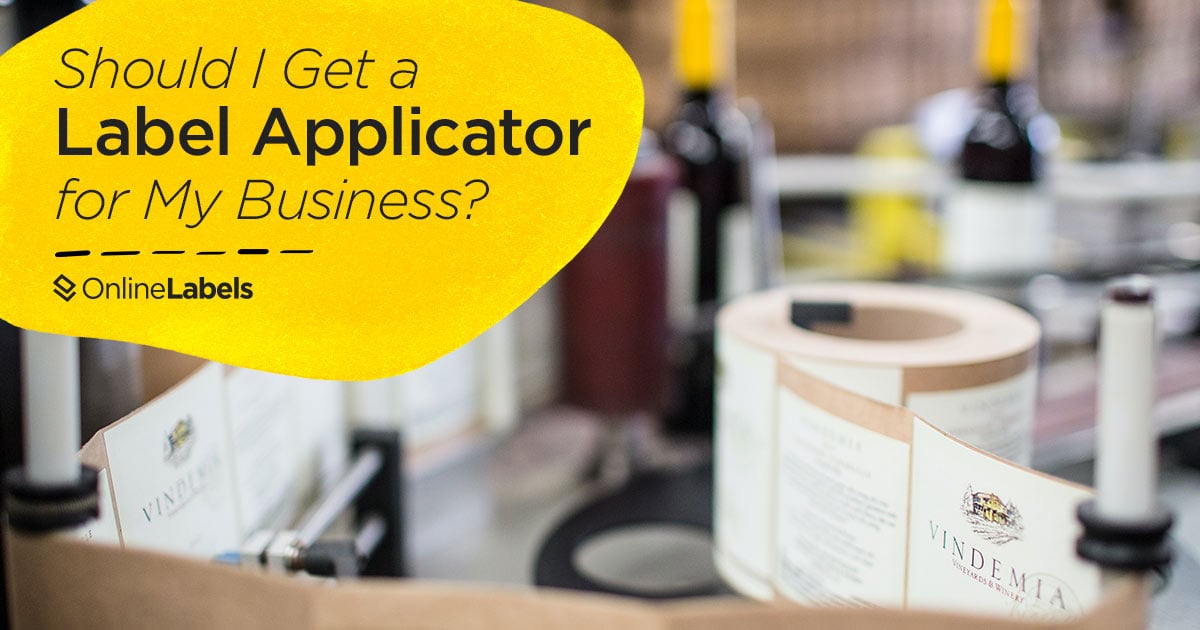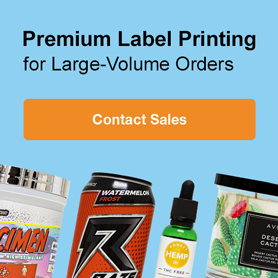Label Applicators: Should I Invest in One for My Business?

In the fast-paced world of ecommerce, efficiency and precision are vital. Whether you're a small business owner or a large enterprise, the need to apply labels swiftly and accurately is essential. There’s a few aspects of the packaging and labeling process that businesses can adjust to make it more efficient, but in this article we’ll be focusing on one: label applicators. We'll explore what label applicators are, which industries commonly use them, when it's worth investing in one, what to look for in a label applicator, and considerations for maintenance costs and performance.
What are label applicators?
Label applicators are specialized machines with one purpose: to apply labels to products or containers quickly and accurately. They automate the labeling process, reducing the risk of human error and increasing efficiency in the production process. These machines are equipped with various tools, such as rollers, tampers, or air pressure, to really make sure the labels are adhered firmly to the target surface.
Types of Label Applicators
Label applicators come in different types, each designed for a specific application. Before deciding to invest in one of your own, familiarize yourself with the different types to ensure you choose the right one for your business. The applicator you choose will depend on the specific needs of your business, including the amount of products you label as well as the nature/shape of the products. For example, small businesses may start with manual applicators, while larger enterprises with higher production volumes may require automatic or specialized applicators.
Manual Label Applicators:
Manual label applicators are ideal for small businesses and low-volume labeling needs. They are commonly used for applying labels to individual products or packages and are operated by a user. These typically consist of a handle, a label dispenser, and a roller. The user peels the label from the backing paper and applies it to the product, container, or packaging by rolling the applicator over the surface.
While these are the least expensive type of applicator, the process can be time-consuming and result in inconsistent label placement if not careful . But even still, manual label applicators could be a huge help to young businesses.
Semi-Automatic Label Applicators:
Semi-automatic label applicators are perfect for businesses with moderate labeling needs or small to medium-sized enterprises. They output higher volumes and offer increased efficiency. These typically have a sensor that detects the product or package's presence. After the user loads labels onto a roll, the applicator automatically dispenses and applies the labels to the products.
Automatic Label Applicators:
Automatic label applicators are designed for high-volume production environments or large enterprises where speed and accuracy are critical. They’re integrated into production lines and rapidly label products on a conveyor belt. They use advanced sensors and controls to detect the product's position and precisely apply labels. They can be configured to handle various label sizes and shapes. These require the most space and financial investment, but are absolutely essential for businesses with a high production volume.
There are two types of automatic label applicators: rotary and in-line. Both are much faster and more accurate than manual and semi-automatic label applicators, but rotary takes the cake as the fastest and most consistent machine.
Other Customizations:
Within each of the 3 categories listed above are even more label applicator customizations including orientation style, application method, products type, and more.
Orientation Style
- Wrap Around Labelers
- Top Labelers
- Top & Bottom Labelers
- Front & Back Labelers
- Shrink Sleeve Labelers
Application Method
- Wipe on
- Tamp blow
- Air blow
Beyond this, there are other specific capabilities of different applicators, for example, ones specifically made for bottled products.
Industries Commonly Using Label Applicators
Label applicators have the potential to be useful for most ecommerce businesses and industries, but some common ones include:
Food and Beverage: Label applicators are commonly used to label bottles, cans, and to package food and beverage products. Accurate labeling is necessary for compliance with regulatory requirements and brand consistency.
Pharmaceuticals: The pharmaceutical industry relies on label applicators to label medicine bottles, vials, and blister packs. Precision and tamper-evident labeling are critical here.
Cosmetics and Personal Care: Labels play a vital role in marketing cosmetics and personal care products. Label applicators ensure that labels are applied neatly and centered on the packaging.
Manufacturing: In manufacturing, label applicators can be used to label products for quality control, tracking, and inventory management.
Logistics and Shipping: Parcel and package labeling for shipping and tracking purposes are made efficient with label applicators.
Don’t see your industry listed? Label applicators can be useful for businesses in practically any industry. Just let your supplier know about your needs and products and they’ll be able to hook you up with the right applicator for your business.
When is it worth investing in a label applicator?
Investing in a label applicator can be a total game changer for your business. But we want to help you make the right decision, so before doing taking the leap, a few variables should be considered:
High Labeling Volume: Does your business have a high production volume? When your business consistently applies labels to a large number of products, switching from manual labeling to an applicator can save time and reduce errors.
Consistency and Accuracy: For products that demand precise and consistent label placement, an applicator can ensure that labels are placed correctly every time.
Cost Efficiency: While there's an initial investment, an applicator can lead to cost savings over time through reduced labor costs and decreased material wastage from fewer labeling mistakes.
Improved Productivity: Applicators, especially automatic ones, work at a much faster pace than manual labor, helping to meet production demands more efficiently.
Labeling Complex Shapes: If your products have irregular shapes or require labels in challenging positions, specialized applicators can reduce error and hassle.
Compliance and Traceability: In regulated industries, such as pharmaceuticals or food production, an applicator ensures labels adhere correctly, reducing compliance risks.
Enhanced Branding: A label applicator can provide a consistent and professional appearance for your products, strengthening brand identity.
Reduced Risk of Injuries: Have a large team of employees to account for? Manual labeling tasks can lead to physical strain. Using label applicators can improve workplace safety by reducing the risk of injuries.
Versatile Labeling: For businesses with products requiring different label types, sizes, or shapes, some applicators can be easily adjusted to handle various label configurations in a short period of time.
Scalability: As your business grows, investing in automation, like a label applicator, is a step toward scaling up.
Minimized Label Wastage: Manual labeling can lead to label wastage due to incorrect application or damage. Label applicators reduce waste by applying labels precisely every time.
Investing in a label applicator is worth considering for many reasons, but it’s important to weigh the costs and evaluate if it’s beneficial for your business. Carefully assessing these considerations for your business should help you to reach a decision.
What about label dispensers?
Label applicators and label dispensers are related tools used in the labeling process. They serve different purposes and have distinct functionalities. Label applicators apply labels to products, whereas dispensers separate labels from their backing for manual application.
Label dispensers work by dispensing labels from a roll or stack, making it easier for the user to manually apply the labels to products or packaging.
With that being said, label dispensers are great for very small businesses that aren’t quite ready to invest in a label applicator. When labels are being applied to products or packaging manually, label dispensers can work wonders to speed up that process and prevent fatigue for the user. Label dispensers come in various forms, such as table top dispensers, handheld dispensers, and electric label dispensers. The choice depends on the specific labeling needs and preferences of the business.
Label applicators are invaluable tools in industries where efficient and precise labeling is essential, no matter the business size. They streamline the labeling process, reduce errors, and enhance overall productivity.
We hope this article aids you in making an informed decision for your business. Need labels for your products? Get started today with our custom labels, or shop premium labels for large quantities.



